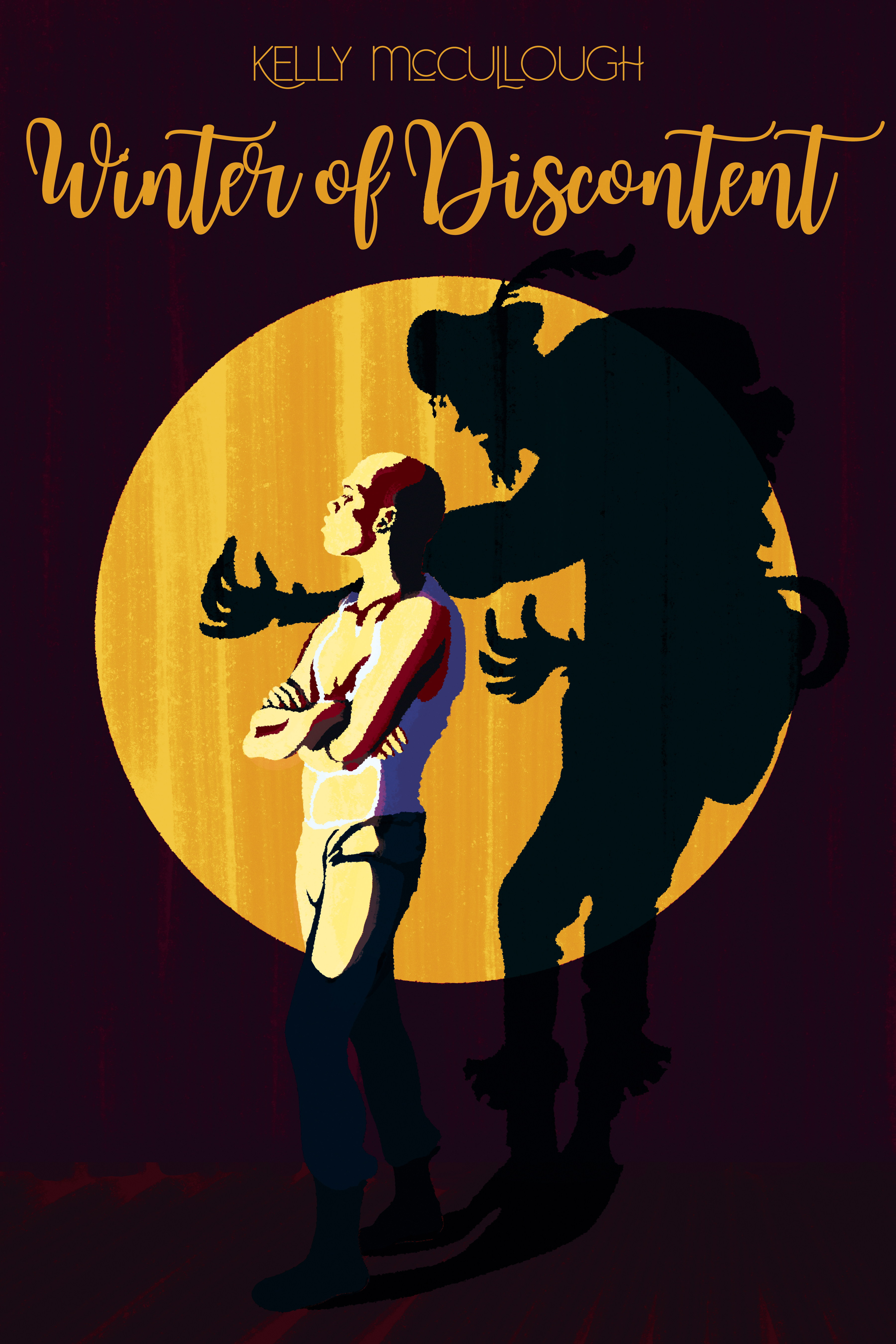Ebook: | Kindle (Sponsored link)| Nook
Desmond was a soldier until a piece of shrapnel took away his life’s work. Now he only feels alive when he’s being someone else, so he’s majoring in theater while dreaming about losing himself forever. He’s about to discover the cost of dreams.
William Shakespeare is the greatest sorcerer who ever lived. People still believe in the characters he created 400 years ago. He has made them immortal. Literally. In Winter of Discontent, Shakespeare’s immortals live on in an eternal half life. Half themselves, half the creatures Shakespeare made of them. When the magic of theater meets the Magic of Theater in a production of Richard III a deadly chess game between the damned is the result.
Where there are players, there are also pawns. Matt and Riana are actors and friends of Desmond. They are also novices in the theatrical magic tradition that created Shakespeare where Desmond is not. Sworn to a secrecy that seals their lips, can they help Desmond stay alive and stay true to their oaths at the same time?

